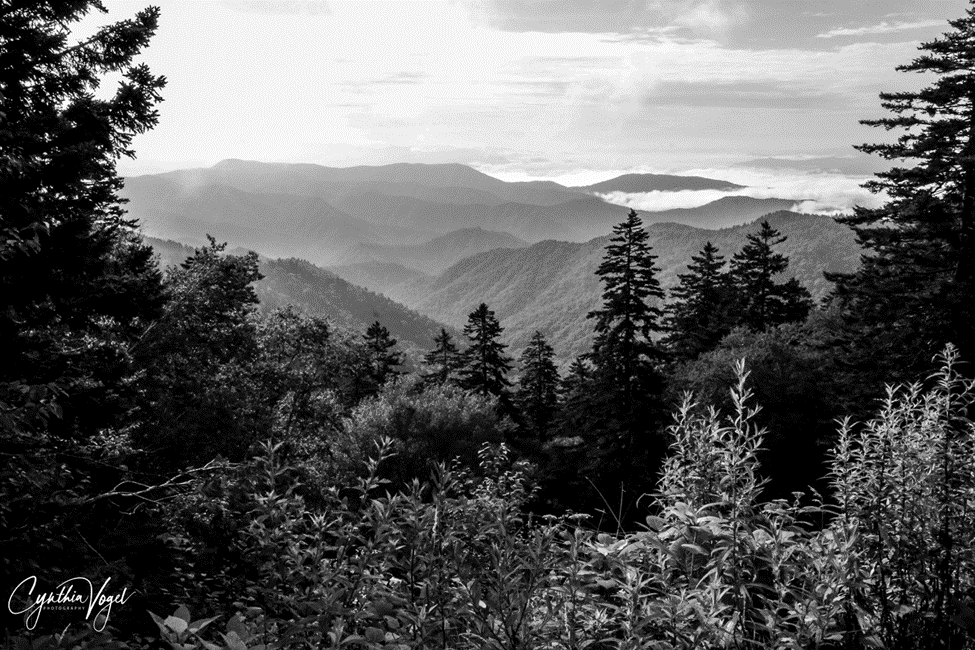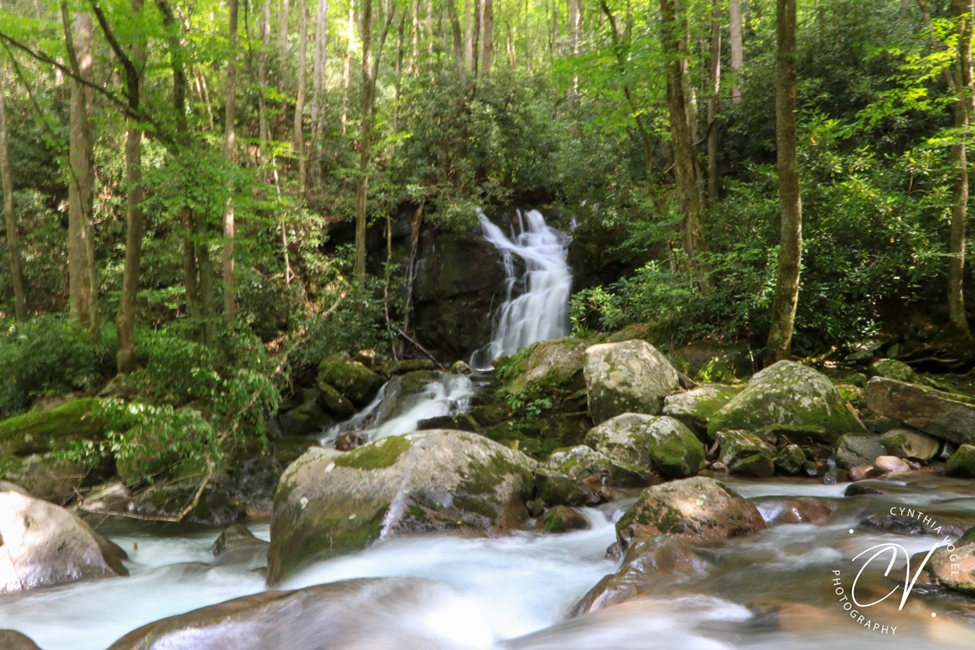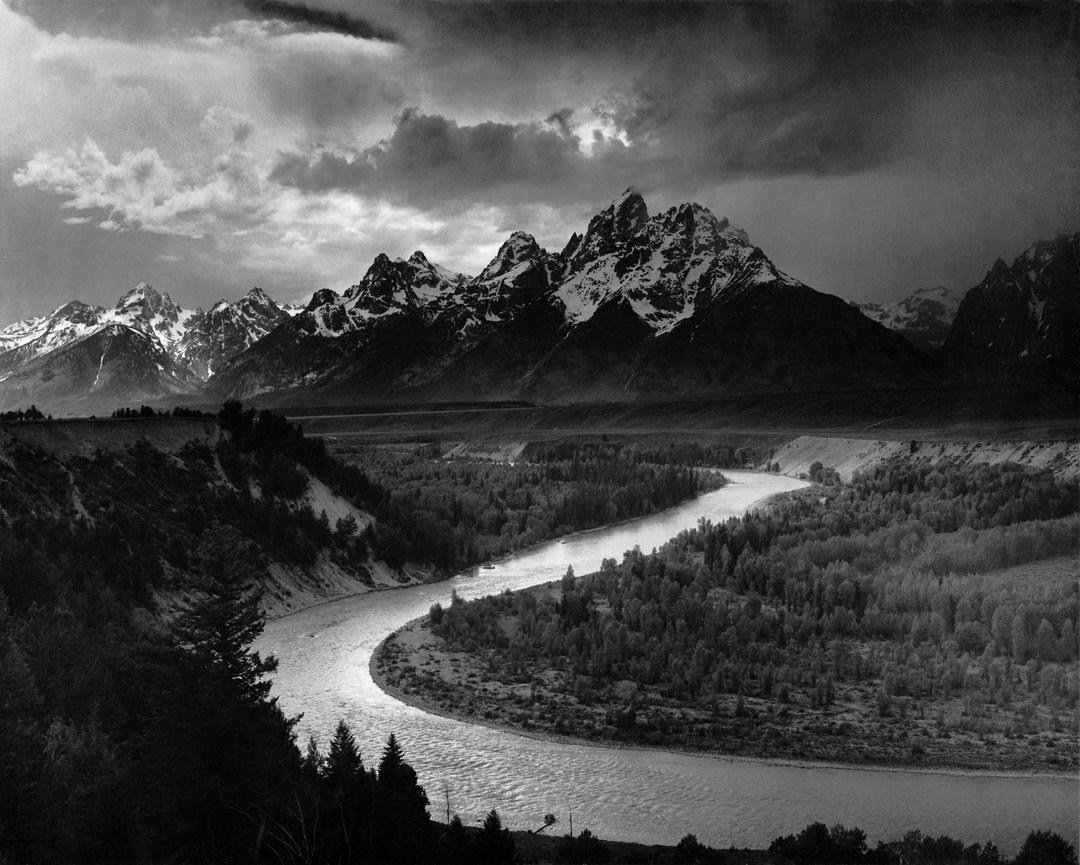Capturing Influential Philosophy
To illustrate the philosophical ideas which I consider most significant in Ansel Adams’s work, I created two photographs of my own (see fig. 1 and 2). I took both of the images in the Great Smoky Mountains. With the help of these photos, I tried to reflect the philosophical concepts of environmentalism, which advocate the preservation and conservation of nature in its original form rather than altering it for people’s convenience. Moreover, too frequently, nature is changed not for some good causes, such as the need to make roads, but merely because people are too lazy to clear up the garbage they produce. As a result, it becomes impossible to enjoy the beauty of landscapes without having to observe destroyed or littered pieces of nature.
I attempted to organize the content of my photographs in a way expressing the philosophical ideas of environmentalism. In the first image (see fig. 1), I arranged the details in the composition to guide the observer through the place I captured by the camera. With the help of the play of the light and shadow, I gained the effect of vivacity and cheerfulness. At the same time, dark trees, situated approximately in the middle of the composition’s horizon, present a feeling of alertness and the fear of something undiscovered. In the second image (see fig. 2), a similar approach was employed. I wanted to capture a waterfall in its pristine beauty. It took me much effort to take a photo without people in it. Unfortunately, too many individuals prefer to disturb nature rather than enjoy the contemplation of it. Therefore, I exploited capture techniques and then used editing tools in industry-standard software to highlight the impact of Adam’s philosophical ideas on my work.


Enduring Influence
An Artist Statement
The photos I took for the project reflect my inner world. I am convinced that the beauty of the nature around us is meant to be untouched and deserves to be treasured not destroyed. To emphasize my feelings and intentions expressed in the first photo (see fig. 1), I will compare it to Ansel Adams’s work entitled “Tetons and Snake River” (see fig. 3). Both images bare not only aesthetic but also historical significance. Adams’s photograph depicts a graceful river winding among the mountains and woods. My photo shows mountains’ peaks and foregrounds along with a line of trees in the middle and a line of plants at the front of the composition. Both of the photos show deep respect and love for nature and its pure beauty that has not been marred by a man’s presence. In both images, the horizon is placed approximately in the top third of the work. Adams’s photograph contains more elements, which makes it more engaging by showing various pieces of nature. However, while my photo has fewer planes of context, it is also rather pronouncing and clearly expresses the ideas of environmentalist philosophy.
The historical significance of my photo is in the preservation of natural landscapes in their untouched form. Time goes by, and many of the unique pieces of natural beauty that are truly magnificent become spoiled due to technological progress or pollution. Thus, my work is aimed at promoting the safety of nature and its preservation for future generations. My photograph reflects the present beauty which, hopefully, will remain in this condition with the help of other concerned people.

The Influence of Adams’s Photography on My Work
Ansel Adams’s work has had a tremendous impact on my work both in professional and spiritual dimensions. First of all, I have been inspired by Adams’s photographs since an early age, when I first saw them. As I grew up and my environmentalist aspirations strengthened, I became even more interested in Adams’s creations. Hence, I tried to interpret the philosophical ideas represented in the inspirational photograph (see fig. 3) in my work (see fig. 1). One of the specific qualities signifying Adams’s effect on my photo is the composition, which involves a careful selection of colors and shades. With the help of this feature, both images display all elements present in them distinctly. Another quality reflected in both photos is the impeccability of nature without people’s intrusion. The two works clearly express the intention to preserve the environment by taking good care of it and not disturbing it without a reasonable cause.
I plan to continue exploring the mentioned philosophical ideas in my future work. Particularly, one of the goals I have set for myself is taking a series of “before” and “after” photos that will display untouched landscapes and then show them after people’s intrusion. It is likely that such a series might incorporate works of photographers working in the past to reflect the “before” part and my works to portray the “after” part. Another goal that will help to highlight the ideas of environmental philosophy is contrary to the first one. I might take shots of the same place when it is dirty and littered, and then photograph the same landscape after cleaning it. Finally, I will continue shooting impeccable natural landscapes to proclaim the ideal of conserving them for future generations.
Work Cited
Adams, Ansel. Tetons and Snake River. 1942. Weston Gallery. Artsy, Web.